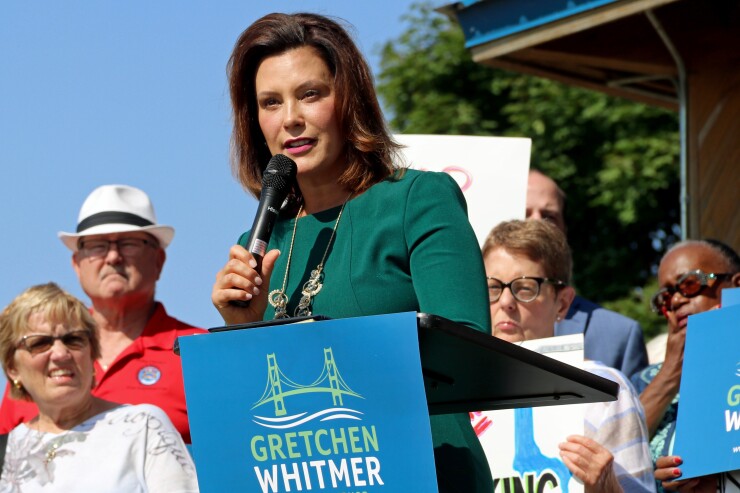Michigan's revenue prospects for the next two years are slightly improved compared to May projections, the latest state revenue forecast says.
The state expects to see an extra $265 million in tax revenues for fiscal 2019, which ends Sept. 30, and $225 million in fiscal 2020, said the members of the state's Consensus Revenue Estimating Conference.

General fund estimates are up due to higher projected growth in individual and corporate income taxes, according to the conference members, who include state Treasurer Rachael Eubanks, state budget director Chris Kolb, Senate Fiscal Agency Director Chris Harkins and House Fiscal Agency Director Mary Ann Cleary.
“Today’s agreement shows the economy is projected to grow at a modest pace,” Eubanks said in a statement.
The state is expected to collect $10.7 billion in general fund revenue during the current fiscal year, up $288.6 million from previous estimates but down 2.2% from 2018.
Officials raised their projections for the general fund by $199 million in 2020. Officials also lowered revenue projections for the School Aid Fund $23.9 million this year while raising estimates $25.9 million for 2020.
Kolb said that the state’s general fund total today is almost exactly where it was when he started legislature two decades ago. “General Fund revenues have remained flat over a long period of time, and so we have a fundamental problem of constrained resources and additional funding needed to address real problems for Michigan’s residents,” Kolb said.
The increased revenue comes as the state’s new governor, Democrat Gretchen Whitmer, begins to craft her first budget proposal. It is due to be presented to lawmakers in March.
Whitmer has pledged to fix the roads, improve the state’s infrastructure and drinking water, and fix schools. On the campaign trail, she said she wanted $2 billion a year in new spending for infrastructure and another $1 billion in annual federal funding. The plan relies on raising revenue through increased fees or taxes. If that fails, Whitmer has proposed raising the funds through bonding.
Departing Gov. Rick Snyder signed off on more than $1 billion of supplemental spending before exiting office, allocating $100 million to the state’s rainy day fund and $43 million to eliminate unfunded liabilities for military and judiciary retirement systems.
More than $100 million from added online sales tax revenue will fund projects on Michigan roads, a move Snyder said puts the state two years ahead of schedule on reaching its goal to pump an additional $1.2 billion into transportation spending. Democrats were angered that the funds did not go to schools.
About $69 million will fund the cleanup of contaminated sites. The funding replaces a tapped-out $675 million bond fund for environmental projects.
Another $25 million will provide school safety grants, $20 million will help finance the expansion of broadband to rural areas and $20 million is earmarked for economic development in Detroit.
The Soo Locks construction project and an addition to the state capitol will receive about $100 million in funding.
Michigan is rated AA by Fitch Ratings and S&P Global Ratings. Moody's Investors Service rates the state Aa1. The credit profile benefits from the state's structurally balanced general fund and school fund accounts for the last seven years and the early pay down of some debt and use of surplus cash to fund some infrastructure.





